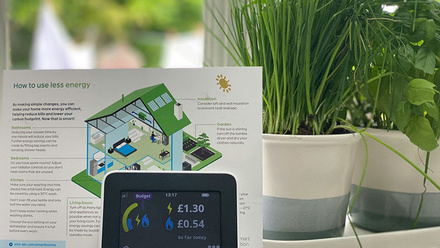Environment, Food and Rural Affairs Committee - Plastic Waste – it’s the system and materials
Environment, Food and Rural Affairs Committee heard evidence relating to plastics on 18 January, witnesses included polymer experts.

Witnesses present were –
- Professor Andrew Dove, Professor of Chemistry, School of Chemistry, University of Birmingham
- Kathy Page, Programme Manager, Environment, Science Policy Unit, Royal Society of Chemistry
- Professor Rachel Rothman, Professor of Sustainable Chemical Engineering, Co-Director, Grantham Centre for Sustainable Futures, University of Sheffield
- Professor Mark Miodownik CEng HonFIMMM, Professor of Materials and Society, University College London.
- Richard Daley, Managing Director and CTO, ReNew ELP
- Professor Steve Fletcher, Professor of Ocean Policy and Economy, Director of Revolution Plastics, University of Portsmouth
- Professor Michael Shaver FIMMM, Director, Sustainable Materials Innovation Hub, Professor of Polymer Science, University of Manchester
- Jenny Grant, Head of Organics and Natural Capital, Association for Renewable Energy and Clean Technology.
The witnesses were asked about compostable and biodegradable plastics and what role they should play in future packaging systems. Mark Miodownik said the two terms should be distinguished from each other He explained, ‘Most things biodegrade; wood and paper biodegrade. Most plastics biodegrade over time, but it takes a long time. Biodegradability by itself is a non-term. It does not really mean anything.’
This is in contrast to ‘compostability’ and ‘compostable plastics’ which are well-defined terms that describe a set of plastics that are designed to be eaten by micro-organisms, under specific conditions. Work is ongoing, he said, to investigate whether or not any microplastics end up in the environment. Rachel Rothman noted a lack of lifecycle data on compostable plastics and how they may affect soils long term.
Jenny Grant noted, ‘There is a lot of lack of clarity around claims and companies that are labelling things, with certain things not being certified. When we are talking about compostables, that independent certification is important.’
Miodownik added, ‘The important thing to say is that it is not just the material. There is no such thing as a sustainable material; there is only a sustainable system.’
Kathy Page emphasised the role of infrastructure, consumer education and standards. While Andrew Dove pointed to recycling inconsistency across the country as a big issue in dealing with plastic waste.
Dove said, ‘I have a specific long-term view that, ultimately, we are not going to be able to collect every single plastic that we make and use. Some of that, almost no matter how good our intentions, will escape into the environment. You could take the long-term view that all plastic in 50 or 100 years' time has to be genuinely environmentally degradable if it is going to be used.’
In terms of public understanding, current labels came under fire for being too complex. Simplicity was called for with Miodownik noting that clear messaging such as ‘Put in the food waste. Put in the recycling’ would make consumers far more likely to act on recycling.
Dove added, ‘The big challenge with compostables at the moment is that there are not many and they do not have a wide range of great properties. There almost might be the flipside that you want to incentivise making better compostables.’
Michael Shaver highlighted the need for a more elegant sorting system enabling protection of the polymer’s properties.
Steve Fletcher said, ‘Reducing the complexity of the plastic market is certainly one way forward. There is such huge diversity in the type of plastics that are out there that it becomes almost impossible to label them consistently and to have the recycling facilities in place that can deal with such a diversity. Practically, in terms of how we deal with such a range of materials, some reduction in the diversity of plastics would be extremely useful. As to the other part of the equation and the improved sorting of plastics, that would help as well.’
Miodownik’s view was, ‘A better way to look at this is to think not about the material but about the system. On plastics, we have very good infrastructure for three plastics: PET, polypropylene and polyethylene. For packaging, that makes sense. Let us get those systems more efficient and reduce the number of plastics.’
Steve Fletcher said, ‘If we take a step back, within the plastics economy, there are certain things we need plastic for and certain things we do not need plastic for. Rather than trying to tax or incentivise virgin or non-virgin, or compostable versus non-compostable, it is about having the right plastic for the right job, and maybe legislating around that and trying to rule out unnecessary uses of plastic.’
‘We should encourage the systemic approach, where we consider what other things we need plastic for and focus on that; we try to either tax out or positively incentivise inwards the uses of the right types of plastic for the right types of application; and then we make sure, where we cannot reuse or remanufacture those, that we have end-of-life treatment that is consistent with that type of plastic.’
Biodegradables ban?
The government have said that they are minded to ban oxo degradable and oxo-biodegradable plastics due to their role in producing microplastics, subject to further evidence and consultation, when asked if more evidence was required, Rothman said, ‘what is interesting to me is not just whether they make microplastics but how long the degradation takes and what forms the plastics go through on the way there.’
‘One of the challenges you have with the oxo-degradables is that they are almost billed as: if they end up in the environment, it does not matter. There is a danger that that gives people a licence to litter, because you are saying that, in an unmanaged waste system, it is okay, because they will vanish.’
There is also confusion about biodegradable items and biobased plastics the witnesses noted.
To move forward with more biobased products, said Rothman, ‘You have to incentivise renewable energy and electricity. If you incentivise the use of biobased materials, as in we take in carbon in the production of plastic within the plant, and you also incentivise a switch to renewable electricity and energy, you are in a much better place.’







